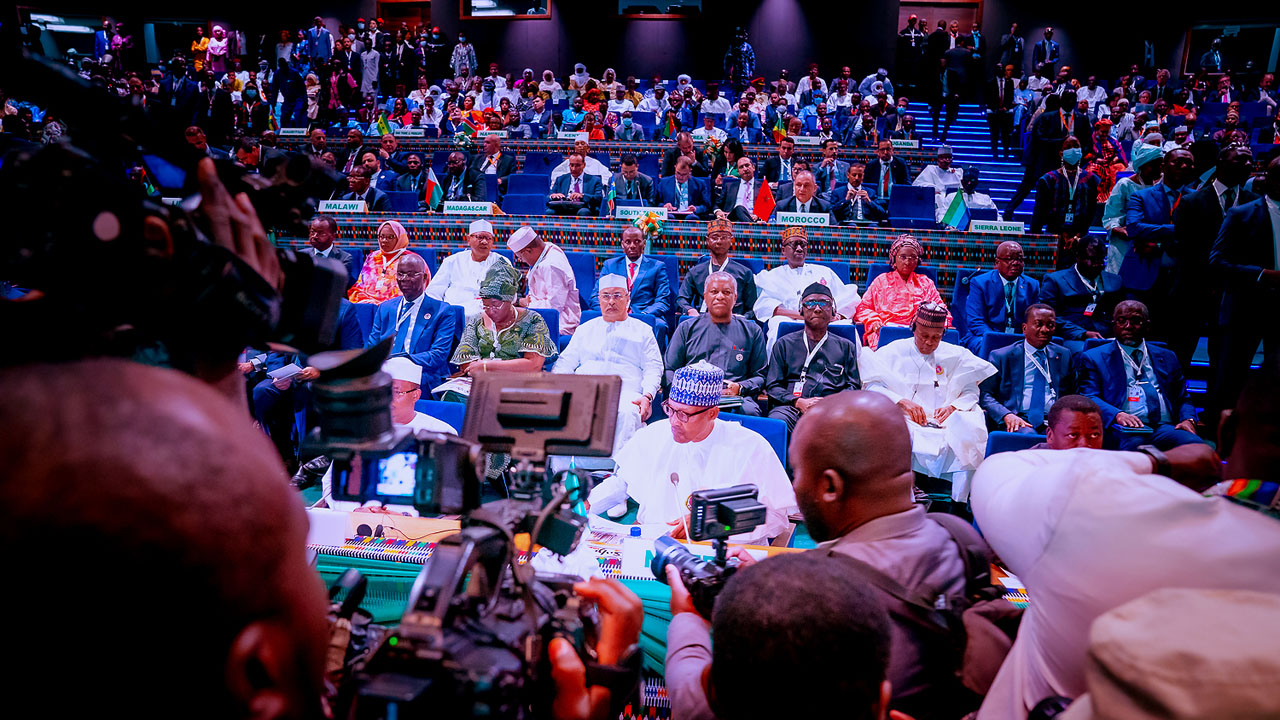
In his National Statement yesterday in Niamey, the capital of Niger Republic, at the AU Summit on Industrialisation and Economic Diversification in Africa, President Buhari urged African countries to tailor their educational system and academic curricula towards Science, Technology, Engineering and Mathematics (STEM).
The President described STEM as the “short way” to produce the next generation of managers of an industrialised Africa not dependent on expatriates.
He urged leaders in the continent to solve the problem of generating cheap and clean energy, saying “it is no secret that we cannot industrialise the continent if we do not solve the problem of generating cheap and clean energy.’’
Buhari added: ‘’Energy generation and distribution is an enabler for industrialisation. Africa is richly endowed with multiple sources of energy generation. We are richly endowed with hydro-carbons, coal, natural gas, solar energy and hydro-energy. Yet we are lacking in the capacity to produce clean and cheap electricity to power our production and manufacturing sectors.
“I hope this Summit will afford us the opportunity to explore the possibilities of collaboration in pooling resources on a continental level to address the vexing problem of energy generation and distribution on the continent.
“I say this because it is no secret that we cannot industrialise the continent if we do not solve the problem of generating cheap and clean energy.
“The African Continent is blessed with a large youth population that can address our labour shortages. Therefore, we should tap this human resource potential that abounds in the continent by providing our youths with qualitative and fit-for-purpose education that recognises the labour market demands.
“In this regard, we must rejig our educational system and academic curricula to gravitate towards Science, Technology, Engineering and Mathematics. This is the short way we can produce the next generation of managers for the industrial complex we envisage, one that will not be dependent on expatriates.”
President Buhari also told the AU Summit that the implementation of the African Continental Free Trade Area (AfCFTA) agreement would give impetus to the continent’s quest for an industrial revolution.
He expressed the belief that the outcome of the Summit would launch the African continent on the path to poverty eradication, food security and technological advancement, issues not far from the goals set out in the AU Agenda 2063 and the UN 2030 Agenda for Sustainable Development.
He commended the United Nations Industrial Development Organisation (UNIDO) for the mileage they have achieved through inclusive and sustainable industrial development plans for developing countries, providing the framework for implementing decisions of the UN and supporting the AU in several initiatives for growth and sustainable development.
He noted that the collaborative efforts have the capacity to ensure an integrated, prosperous and peaceful Africa.
The Nigerian leader also told African leaders that industrialisation and diversification of economies remain the keys and engine to unlock economic growth and build a prosperous continent.
“They are the solution to the socio-economic challenges that have bedevilled Africa, particularly those worsened by the outbreak of the COVID-19 pandemic, the Russia-Ukraine war, as well as the effects of climate change, terrorism and banditry,” he added.






